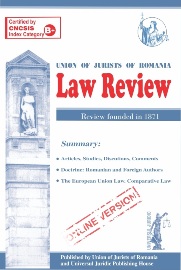Summary Issues of Cybercrime
Summary Issues of Cybercrime
Author(s): Mioara-Ketty GuiuSubject(s): Law, Constitution, Jurisprudence, Criminal Law, Civil Law, ICT Information and Communications Technologies, Philosophy of Law, Comparative Law
Published by: Universul Juridic
Keywords: possession; crime; subjective right; protected interest;
Summary/Abstract: The present study notices that the definitions of cybercrimes raise big problems of hermeneutics. Such crimes were created starting from the premise that computer fraud is a suigeneris crime, which is not to be confused with any of the "crimes against patrimony"" (against "patrimonial rights"), because the latter crimes involve a "material contact" with the stolen object, while cybercrimes are committed "remotely" and, as a result, in their case, such "contact" is missing (does not exist). However, the author considers that this premise is false and that not all crimes against patrimony involve a material relationship with the stolen object. In her opinion, the contrary idea stemmed from the definition that majority civil doctrine gives to the notion of "possession", which is wrong. As Jhering noted, the concept of "possession" does not designate a "state of fact" consisting in the physical mastery of an object, but designates a set of prerogatives conferred by law on the holder of a patrimonial right, by virtue of which he/she may personally use an object or to derive material profit from it, attributing its use to another person. Also, the author considers that many of the cybercrimes disregard the principle of legality, as well as other principles of law, which reveals that the penal doctrine has not clarified its tasks yet.
Journal: Law Review
- Issue Year: 2022
- Issue No: 02
- Page Range: 121-135
- Page Count: 15
- Language: English
- Content File-PDF

